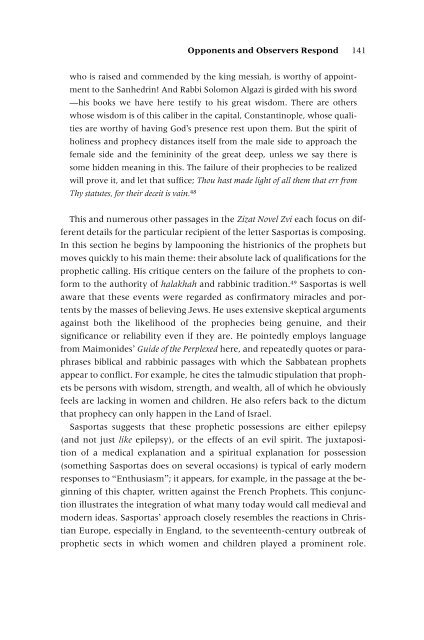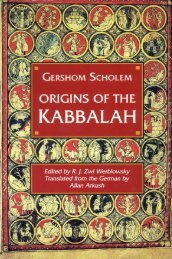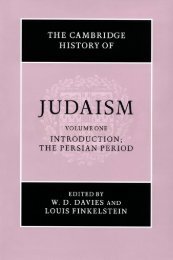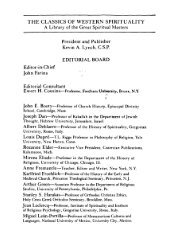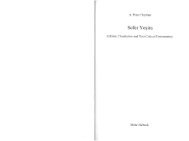Create successful ePaper yourself
Turn your PDF publications into a flip-book with our unique Google optimized e-Paper software.
Opponents and Observers Respond 141<br />
who is raised and commended by the king messiah, is worthy of appointment<br />
to the Sanhedrin! And Rabbi Solomon Algazi is girded with his sword<br />
—his books we have here testify to his great wisdom. <strong>The</strong>re are others<br />
whose wisdom is of this caliber in the capital, Constantinople, whose qualities<br />
are worthy of having God’s presence rest upon them. But the spirit of<br />
holiness and prophecy distances itself from the male side to approach the<br />
female side and the femininity of the great deep, unless we say there is<br />
some hidden meaning in this. <strong>The</strong> failure of their prophecies to be realized<br />
will prove it, and let that suffice; Thou hast made light of all them that err from<br />
Thy statutes, for their deceit is vain. 48<br />
This and numerous other passages in the Zizat Novel Zvi each focus on different<br />
details for the particular recipient of the letter Sasportas is composing.<br />
In this section he begins by lampooning the histrionics of the prophets but<br />
moves quickly to his main theme: their absolute lack of qualifications for the<br />
prophetic calling. His critique centers on the failure of the prophets to conform<br />
to the authority of halakhah and rabbinic tradition. 49 Sasportas is well<br />
aware that these events were regarded as confirmatory miracles and portents<br />
by the masses of believing Jews. He uses extensive skeptical arguments<br />
against both the likelihood of the prophecies being genuine, and their<br />
significance or reliability even if they are. He pointedly employs language<br />
from Maimonides’ Guide of the Perplexed here, and repeatedly quotes or paraphrases<br />
biblical and rabbinic passages with which the <strong>Sabbatean</strong> prophets<br />
appear to conflict. For example, he cites the talmudic stipulation that prophets<br />
be persons with wisdom, strength, and wealth, all of which he obviously<br />
feels are lacking in women and children. He also refers back to the dictum<br />
that prophecy can only happen in the Land of Israel.<br />
Sasportas suggests that these prophetic possessions are either epilepsy<br />
(and not just like epilepsy), or the effects of an evil spirit. <strong>The</strong> juxtaposition<br />
of a medical explanation and a spiritual explanation for possession<br />
(something Sasportas does on several occasions) is typical of early modern<br />
responses to “Enthusiasm”; it appears, for example, in the passage at the beginning<br />
of this chapter, written against the French <strong>Prophets</strong>. This conjunction<br />
illustrates the integration of what many today would call medieval and<br />
modern ideas. Sasportas’ approach closely resembles the reactions in Christian<br />
Europe, especially in England, to the seventeenth-century outbreak of<br />
prophetic sects in which women and children played a prominent role.


